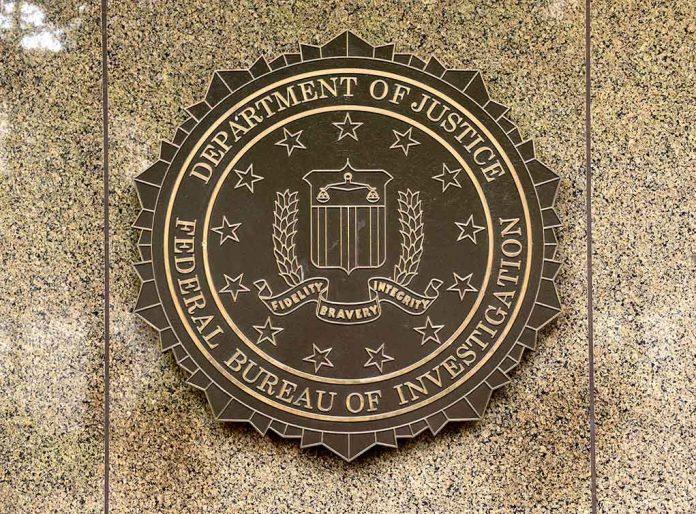
An FBI operation at a Virginia farm turned into a high-stakes legal saga after agents seized over 150 homemade explosives.
At a Glance
- FBI uncovered the largest cache of homemade explosives in agency history at Brad Spafford’s Virginia farm.
- The initial investigation stemmed from a firearm registration violation and escalated after a neighbor’s injury.
- Some explosives were mounted in a vest, raising significant safety concerns.
- Spafford’s attorneys contend his comments and actions are constitutionally protected, arguing for his release.
FBI’s Largest Explosives Seizure
The FBI operation at Brad Spafford’s Virginia farm resulted from an investigation into an unregistered short barrel rifle. The bureau’s agents uncovered the largest cache of homemade explosive devices in the department’s history. Their find included over 150 improvised explosive devices, with most of them being pipe bombs. Some were even preloaded into a wearable vest marked “lethal.” This find has led to a broader investigation into Spafford’s activities and intentions.
Items were found throughout the property, including a garage and a bedroom backpack. Investigators discovered a jar containing HMTD, a highly volatile explosive, stored in a freezer alongside food, posing an inherent risk to the entire household. Prosecutors highlighted that some of the explosives were stored unsecured, intensifying the danger. Most of these devices were detonated on site due to the potential threat they posed.
The Origins of the Investigation
The investigation into Spafford’s activities began when a neighbor reported his stockpiling of weapons. The neighbor lost three fingers due to one of Spafford’s devices. This report, coupled with Spafford’s dubious remarks and actions, such as reportedly using images of President Biden for target practice, alarmed authorities. These revelations have raised questions about the intention behind these manufactured devices.
Charges against Spafford include possession of an unregistered firearm, with prosecutors arguing that he poses an ongoing threat to the community. However, Spafford’s defense attorneys argue there is no hard evidence of an intent to cause harm, raising questions about the contrived nature of the devices. They stress his lack of a prior criminal record and claim his remarks are shielded by the First Amendment.
Legal Turmoil and Constitutional Debate
Brad Spafford’s legal defense hinges on arguing that his statements and actions fall under constitutionally protected speech. His attorneys claim that the government’s prolonged surveillance indicates no immediate threat to public safety. A federal judge ruled that Spafford could transition to house arrest pending further deliberations. The court will continue evaluating these constitutional arguments alongside the factual concerns of public danger.
This case accentuates the complexity of balancing individual rights with community security. As it unfolds, it will likely fuel further debate on the extent of constitutional protections and law enforcement’s responsibilities. The outcome will serve as a reference for similar cases, potentially redefining the boundaries in the intersection of national security and civil liberties.
Sources:
- FBI says it seized largest cache of homemade explosives in its history at Virginia home
- FBI found 150 homemade bombs at Virginia home during search in December, prosecutors say
- FBI Finds Largest Homemade Explosives Cache in Agency’s History. Here’s Where




